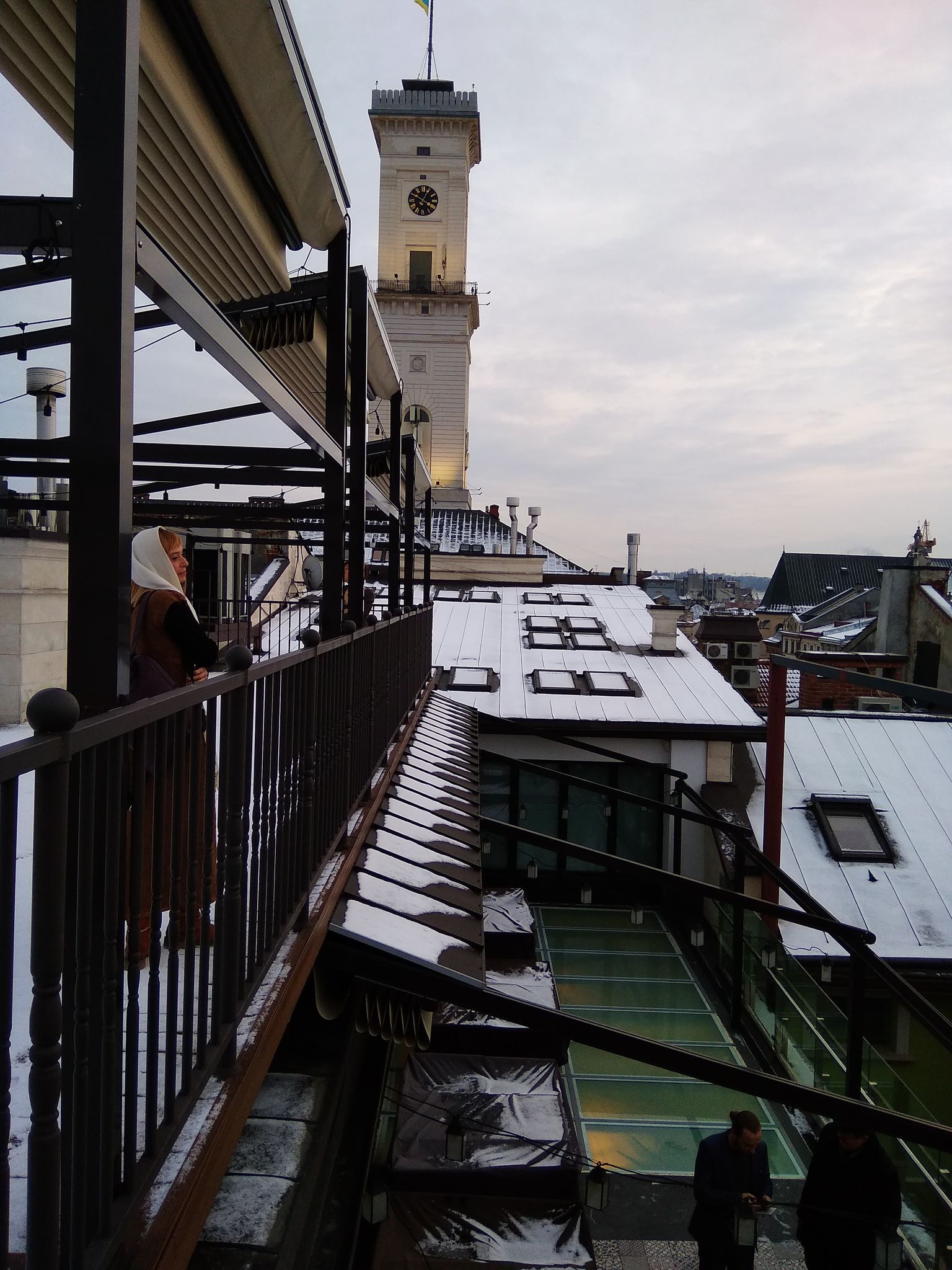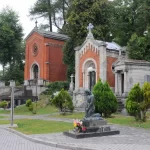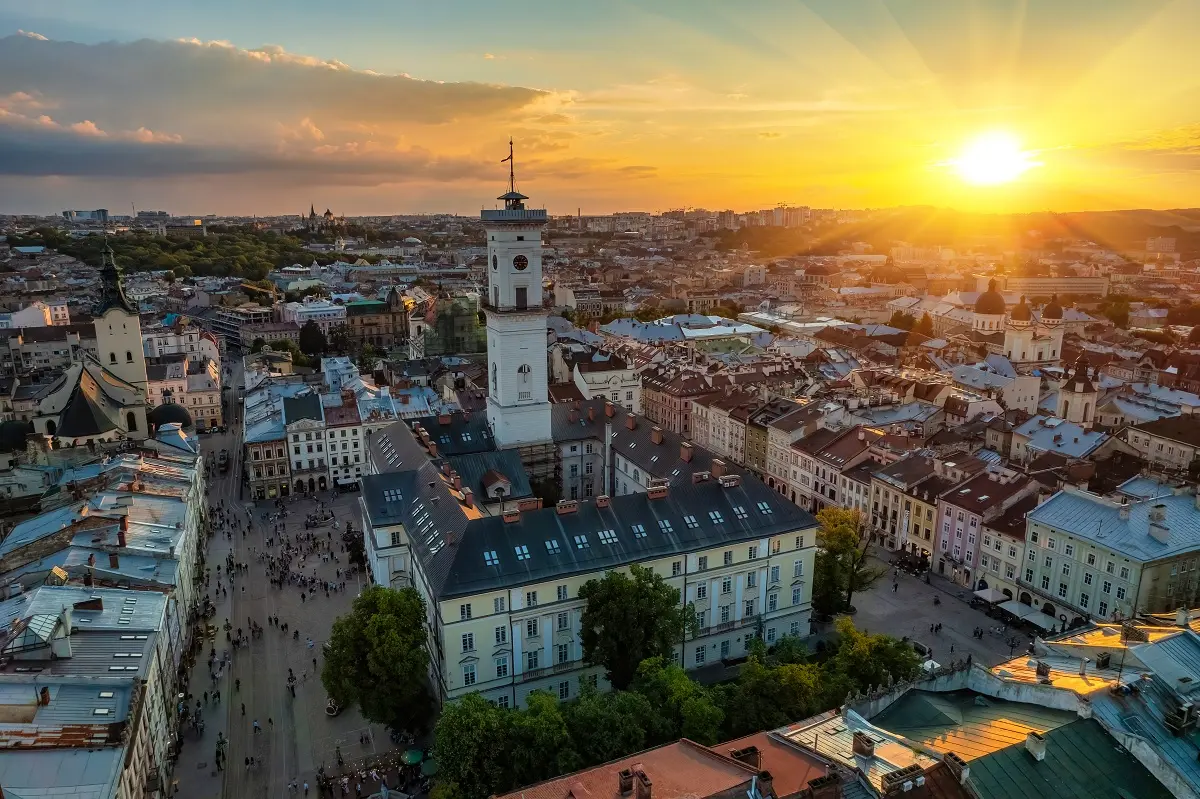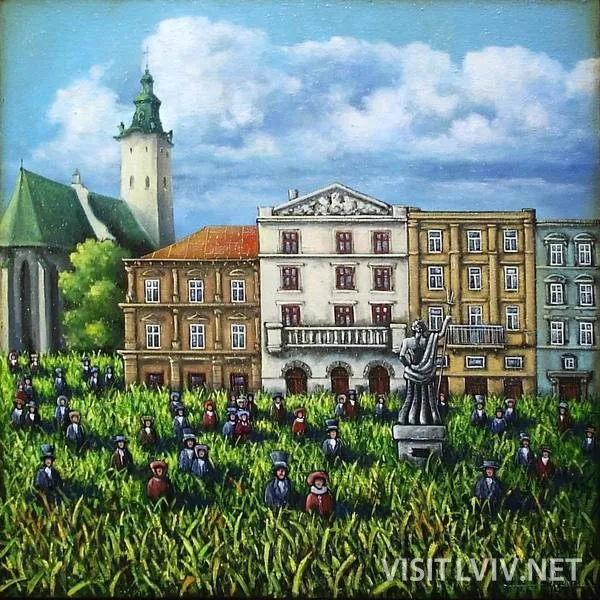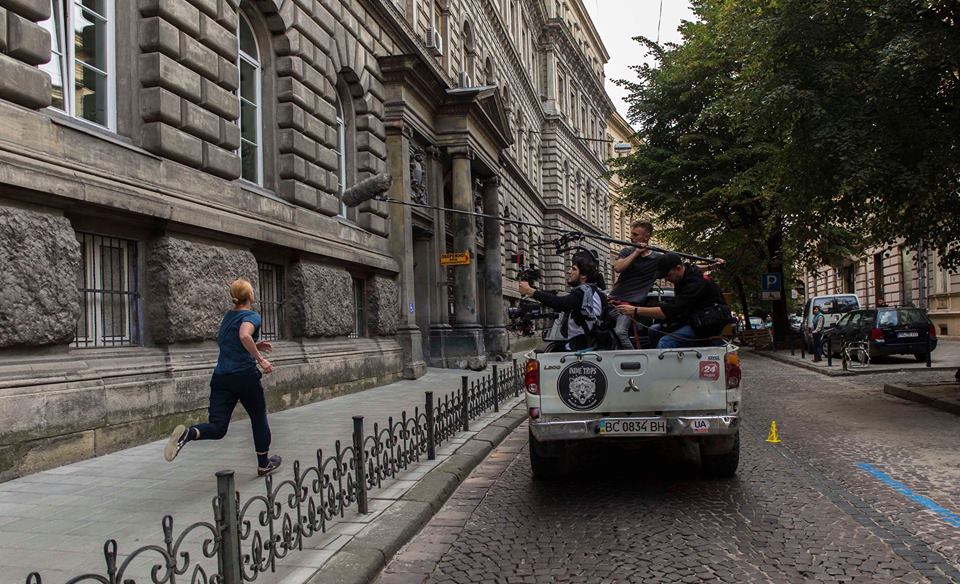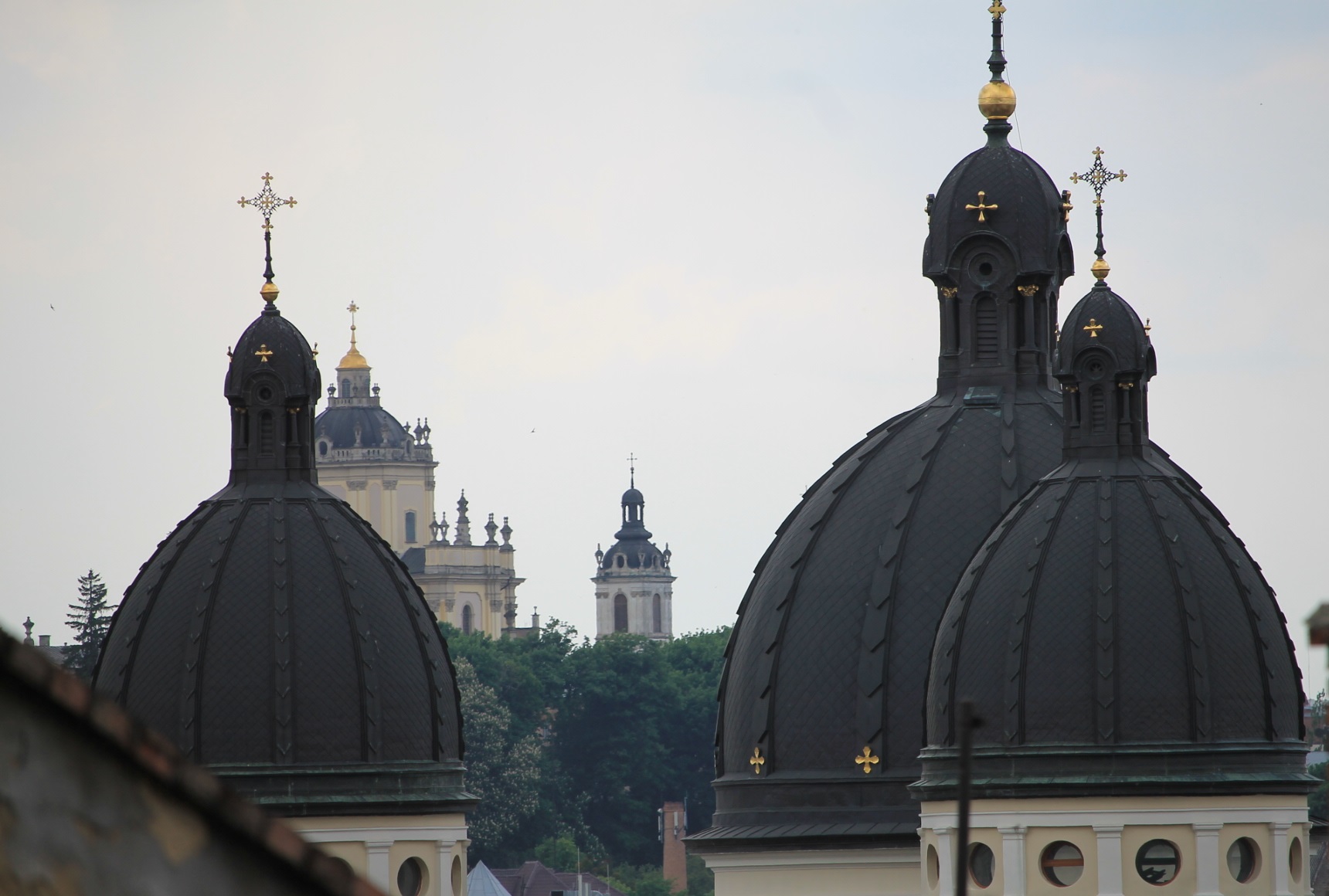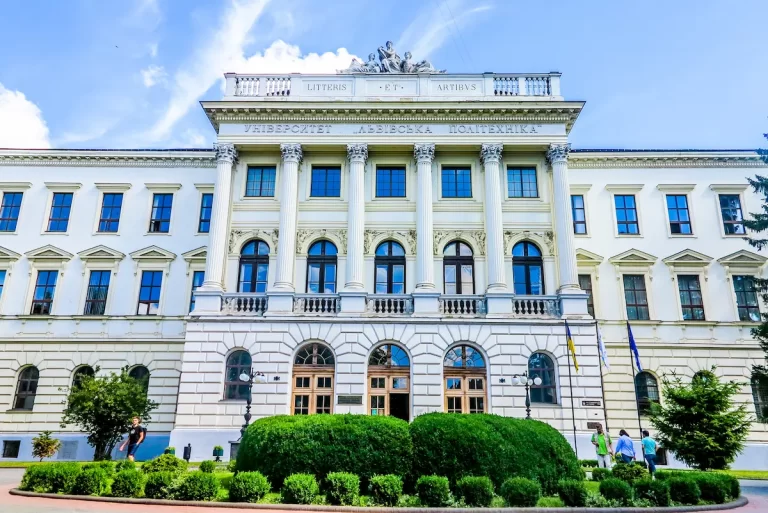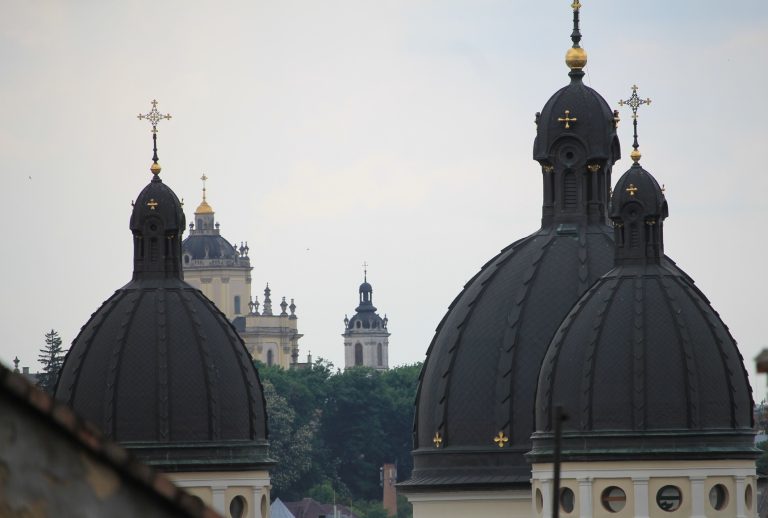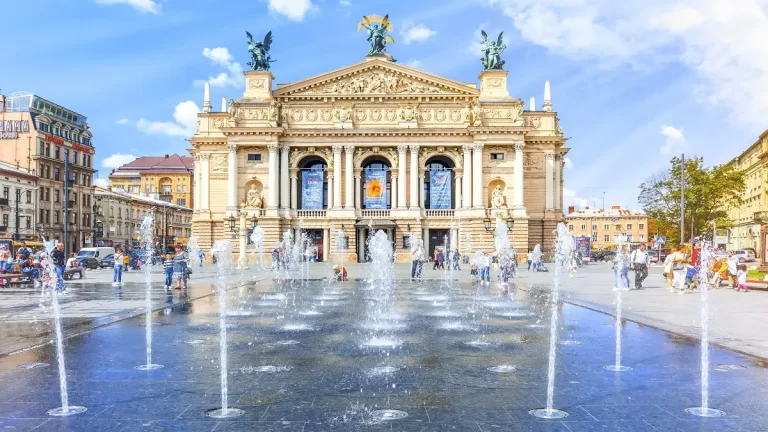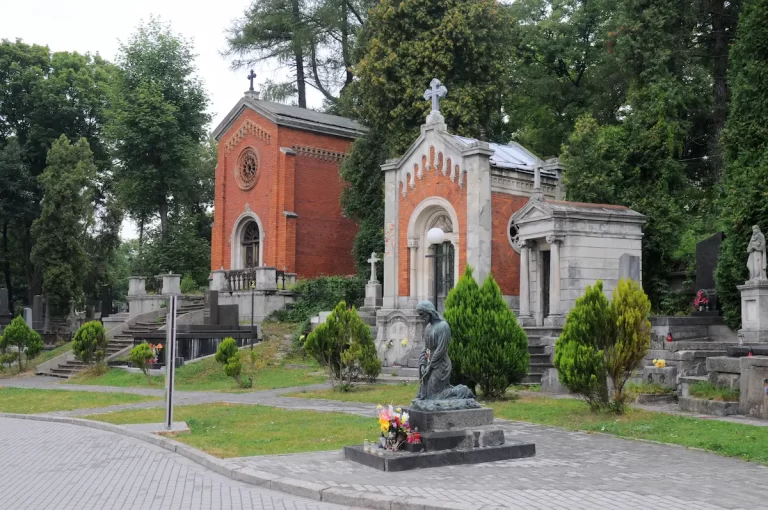Panorama of Lviv from the roof of the house at 36 Rynok Square
Modest palace with Hercules
A lot of attractive palaces has Rynok Square. But today we are talking about an overly modest and devoid of décor house at number 36. Why is he like that? Everything is explained by the fact that Lviv moved to Austria at a time of its decline. And even in the attractive Market, where merchants of the Polish kingdom dreamed of living for centuries, many houses turned into real ruins. Such a fate has not passed and what now has number 36. The then authorities did everything to quickly rebuild those ruins. Very rarely there was money for their lush decoration. The main thing is not to ruin.
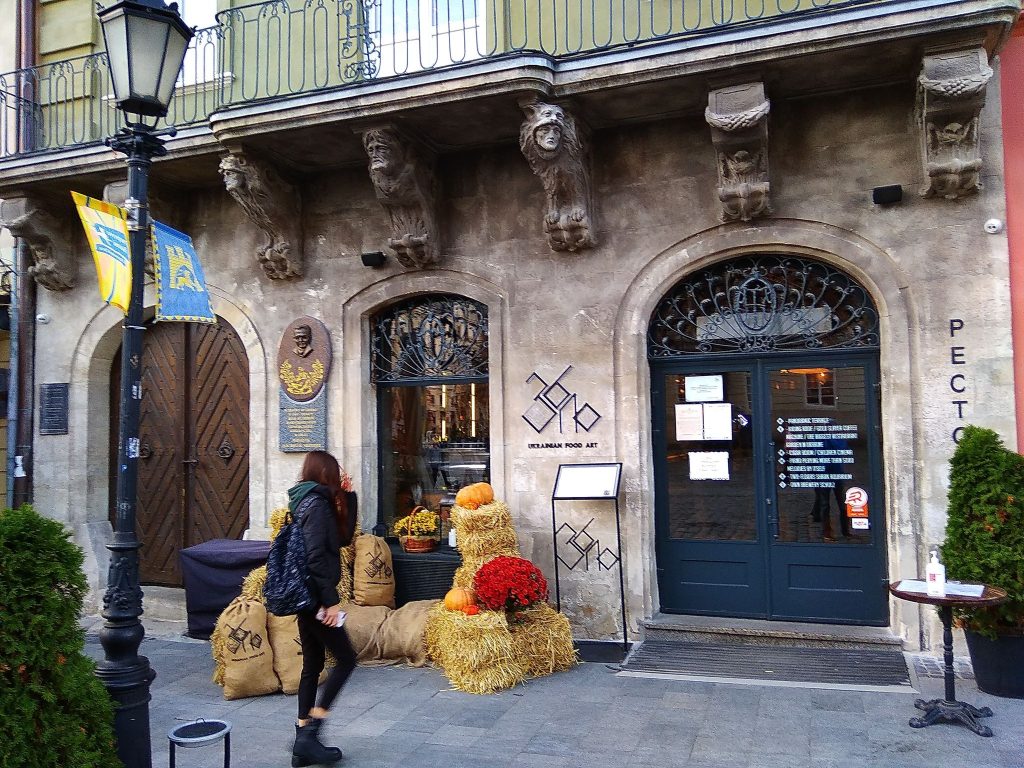
The only decoration is the strange heads under the balcony. These are male heads that look out of animal mouths. Perhaps this is how the traditional image of Hercules was beaten, dressed in the skin of the Nemean lion with a lion’s head instead of a hat? Perhaps these are the works of Matvey Poleyovsky , the sculptor-creator of numerous angels in the main Roman Catholic church of Ukraine, the Church of the Assumption of Mary?
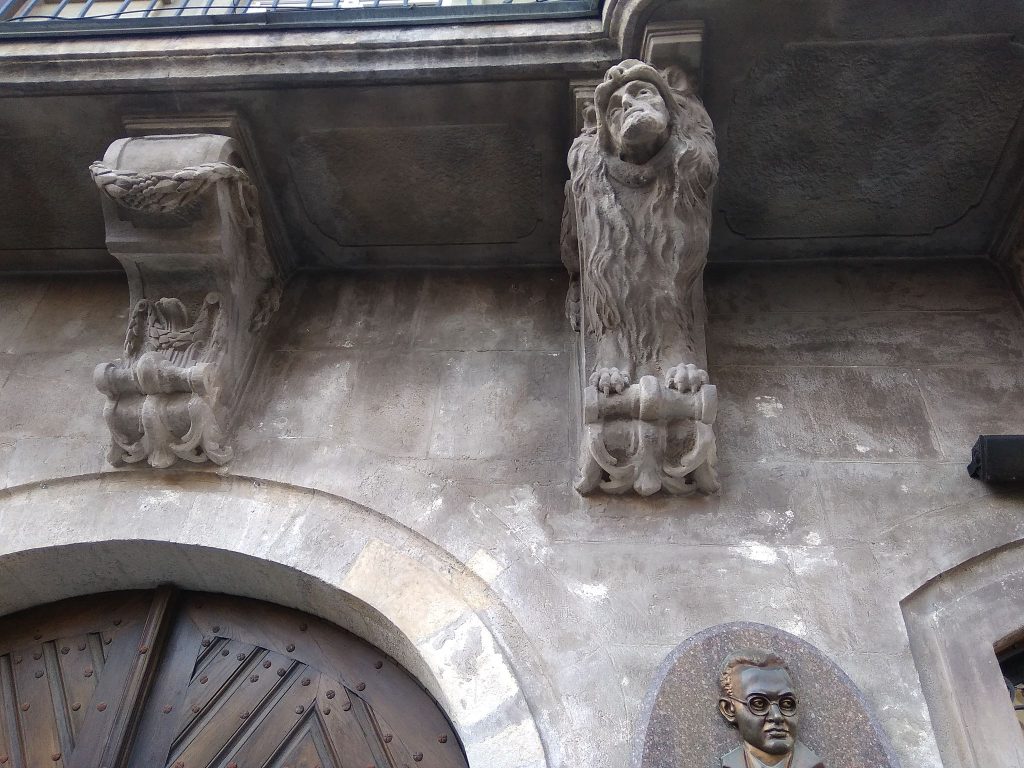
Polish lancers in the service of Austria
But this traditional three-window townhouse for the Market has an interesting past and present. The most interesting story took place in the palace in the first years of Austrian rule. In the third year of the rule of the new government, there was a threat of war with the Turkish Empire. Then Turkey was not so far away, because it belonged to Moldova and the south of Romania.
In newly annexed Galicia, forced mobilization was not going so smoothly. The Austrian state was still alien. And Vienna relies on the Polish patriotism of the local nobility (nobility). And they began to form a purely Polish corps of lancers. They did not even translate Polish terminology, and the Germans in their own way began to pronounce Polish military terms such as tovwarziken from Polish tovarzysz (comrade) or posdoven from pocztowy (post). However, it was not the Pole who chose to lead that army, but the Swiss de Goce. He was a typical mercenary. He managed to serve in both the Russian and Austrian troops. After all, he spoke a little Polish. However, the Poles did understand him.
Here lives a relative of the king!
But a kind of “flag” of the newly created unit was a relative of the Polish king Stanisław Poniatowski – Józef Poniatowski. He was appointed head of one of the departments – the First Division. They did not dare to give him full leadership over the whole unit, but suddenly he would revolt, or would he just withdraw to Poland!?
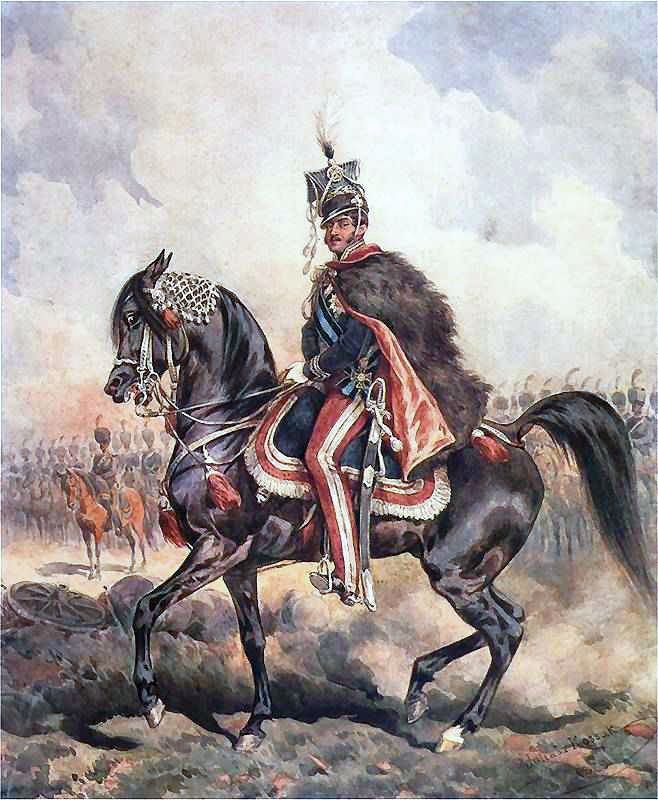
Ressler’s bankruptcy
So, Jozef arrives in Lviv. And the magistrate (city council) settles it in this townhouse. Because then, in fact, it served as a hotel for those statesmen who temporarily came to Lviv. It became them for Count Kortum or Hetman Rzewuski. Although it was not built “for a hotel.” It was owned by Mr. Ressler, a local German. Which built on the site of one of the mentioned ruins. For the fact that the magistrate settled Austrian dignitaries in his house, he had to receive a decent fee not from them personally, but from the same magistrate. The house was really worthy of the level of guests. But Mr. Ressler not only did not get rich, but even went bankrupt because of those settlements. Because the city authorities simply did not pay him anything! I had to sell that townhouse at auction.
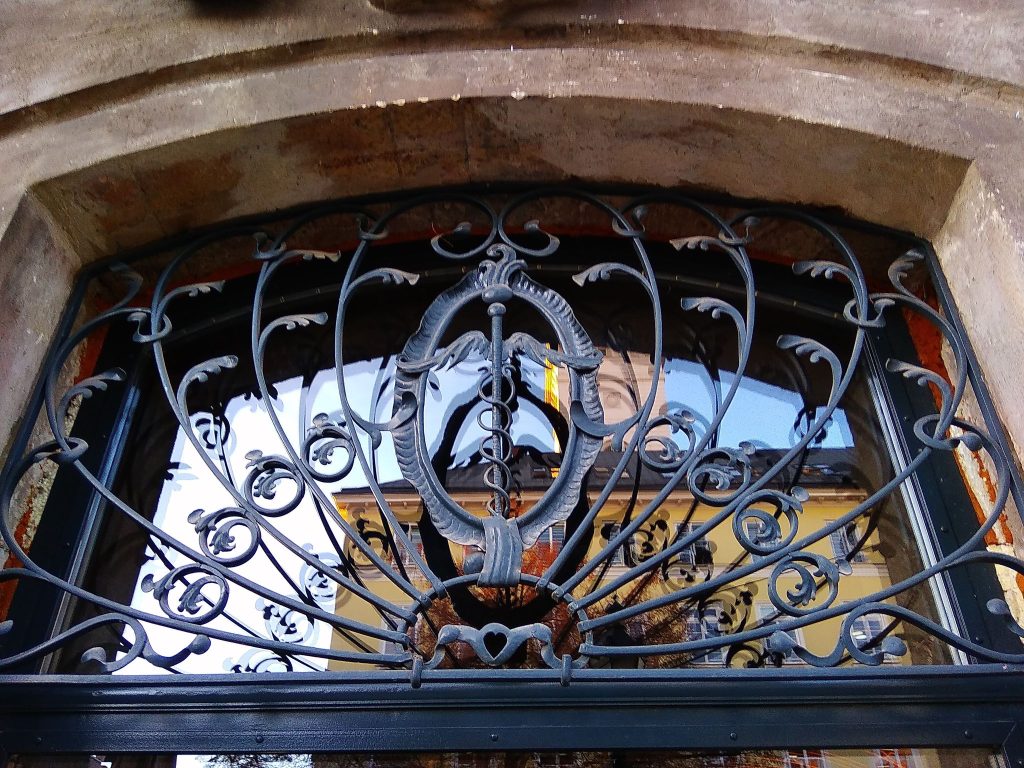
Live in debt
At the beginning of the twentieth century, the building was the headquarters of a very successful Ukrainian cooperative business “People’s Trade”. And for the Soviets – the Institute of Automated Control Systems. Now there is an interesting in design restaurant “36 Po”. This name was formed due to the history of the townhouse: one part – from its address, the second – a hint of the noble resident Poniatovsky.
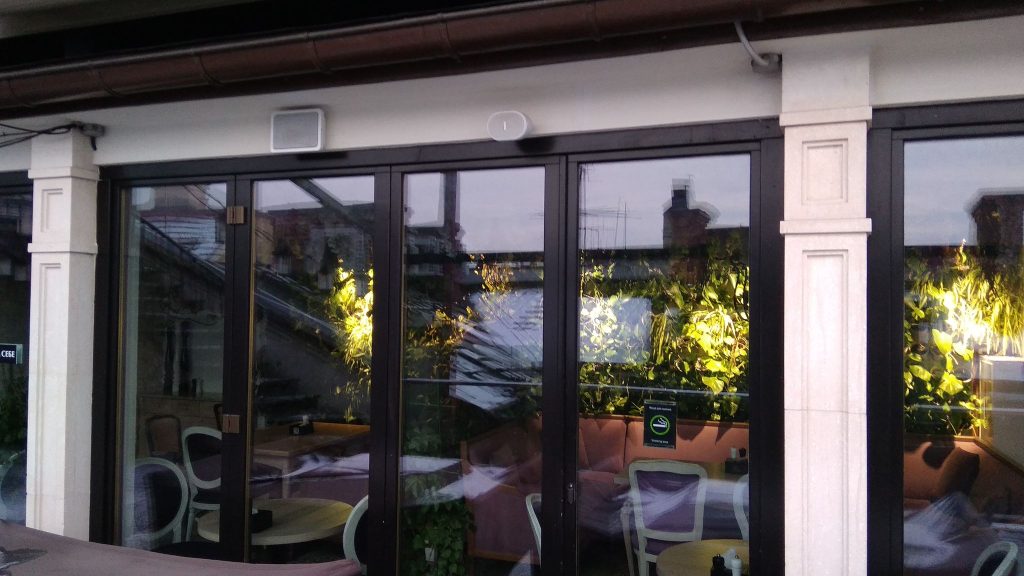
You can talk a lot about its design. What is worth an aquarium with live little sharks. But we advise you to taste coffee on the roof. Hanging gardens and panoramas of the old city are a good combination.
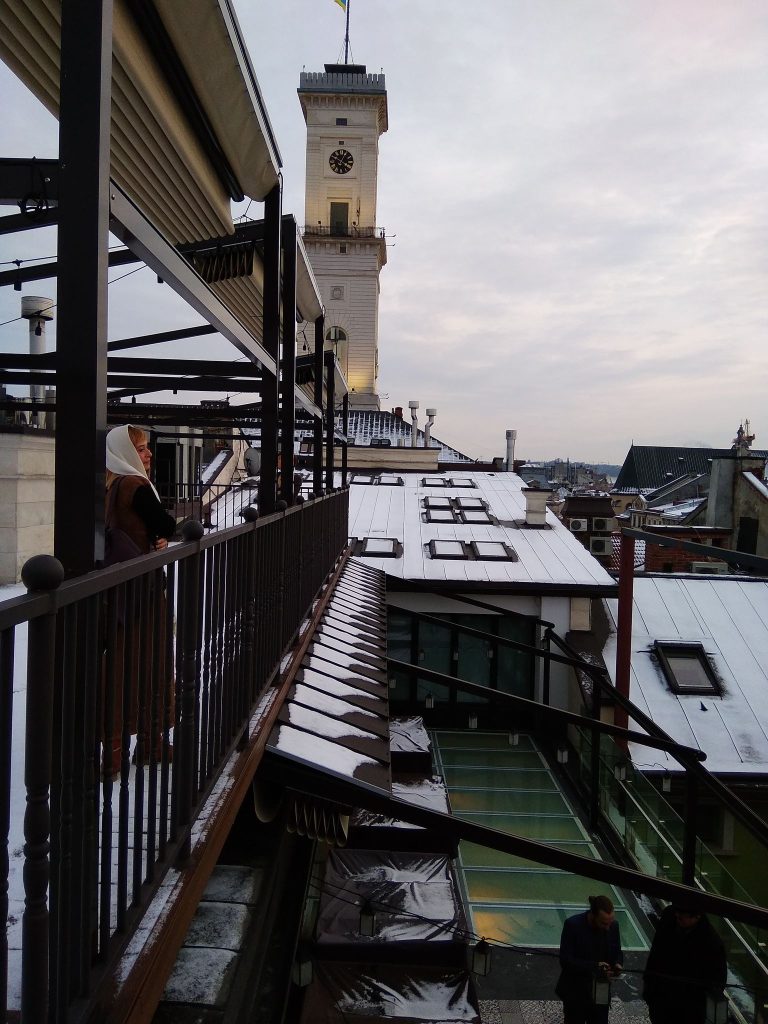
Igor Osidach

